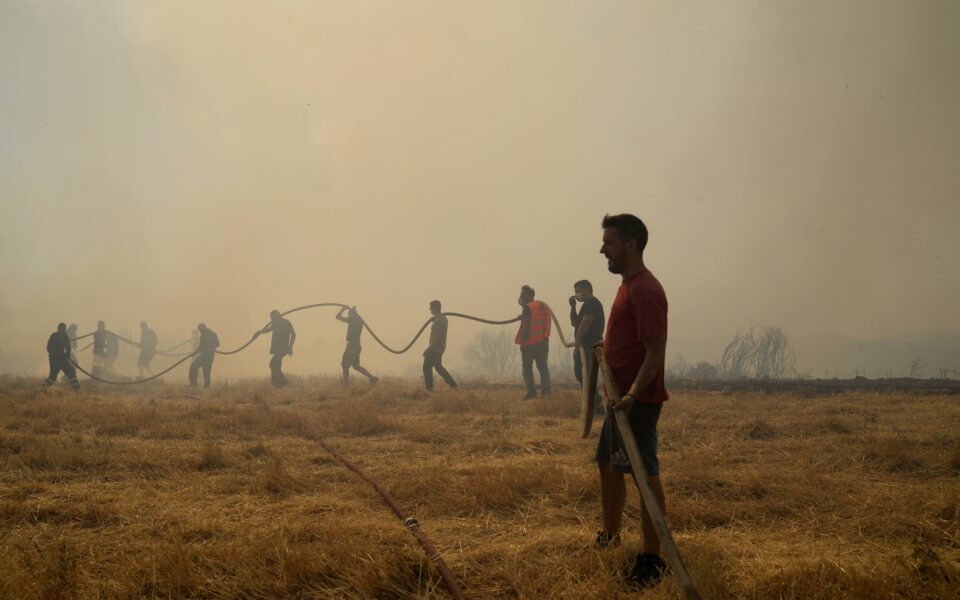Volunteerism as an antidote

The contribution of volunteer firefighters in the battle against the wildfires of the past few days was noted in various ways. They worked day and night, side by side with the professional firefighters, to help put out the blazes and save people’s properties. They have received praise and have been thanked publicly by many.
Their role is invaluable and not just for the obvious reasons. They bolster an essential service that is not particularly popular in Greece: volunteering. In relation to other countries of the European Union (such as Sweden, the Netherlands and Austria, according to official data), Greece has a very small number of people doing voluntary work. After the much-hyped boom witnessed for the 2004 Athens Olympics, people’s willingness to give their time to a cause returned to the familiar, low levels.
Let us not forget that individualism and a habit of having things handed to you have shaped a specific mentality and attitude. The culture of selfless service was unpopular. But little by little, from 2010 on, civil society began to make a timid appearance through organized actions that devoted time and effort to benefit the whole of society, and not just “us.”
It is not only natural disasters and the climate crisis that make volunteering necessary. It is both the social changes that it brings and the willingness to pitch in that it cultivates as part of the cohesive element that is necessary for coexistence: among ourselves here in Greece but also with the world.
There are many private agencies (foundations, organizations, initiatives such as “Together We Can”) working systematically in this direction. But the state also needs to contribute regularly by creating, for example, registers for volunteering and an institutional framework, thus declaring the importance its attributes. Awards and praise are welcome, but they are not official recognition.
The fire service may have established the institution of the volunteer force as early as the 1990s, but it was only in 2011 that a new law introduced a minimum training of 120 hours and certification for the volunteers.
Selfishness has always undermined the country’s future, both at the level of politicians and citizens. Through volunteering, this society fragmented by petty interests can declare its commitment to the common good. It sounds generic, it sounds moralistic, but it is real and it is possible.




